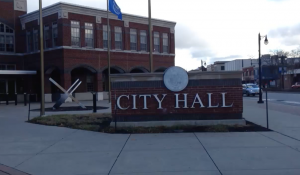 by Tom Tresser. Tom is an educator, organizer and consultant in Chicago’s creative community.
by Tom Tresser. Tom is an educator, organizer and consultant in Chicago’s creative community.
“No Games Chicago” Rallies to Shut Down 2016 Olympic Bid
The International Olympic Committee will be in town from April 2nd to April 8th to evaluate Chicago’s potential as a Host City for the 2016 Summer Olympics. Join with “No Games Chicago” if you think that Chicago 2016 does not speak for the people of Chicago.
Chicago needs better hospitals, housing, schools, and trains — Not Olympic Games.
For more information email nogameschicago@gmail.com or call 312.235.2873
On the web: nogameschicago.com
NO GAMES: Chicago on Facebook
Come to the RALLY. Say ‘NO’ to the Chicago 2016 Olympic Bid
Thursday, April 2, 2009 5pm
Federal Plaza (50 W. Adams)
WILL THE OLYMPICS PRODUCE JOBS AND HELP THE ECONOMY?
Based on the 13 Summer Games between 1964 in Tokyo and London in 2012, the overall costs have exceeded a billion dollars ten times, with a net profit only once.
Source: Chris Shaw. Five Ring Circus: Myths and Realities of the Olympic Games
Bid Books Lie. They overstate the benefits of the games and understate their costs. The result is huge coasts and debt for the tax payers of the host city.” “The most important piece of advice that a local government can take regarding mega-events, however, is simply to view with caution any economic impact estimates provided by entities with an incentive to provide inflated benefit figures. While most sports boosters claim that mega-events provide cities with
large economic returns, these same boosters present these figures as justification for receiving substantial subsidies for hosting the games. The vast majority of independent academic studies of mega-events show that the benefits to be a fraction of those claimed by event organizers.”
Source: Prof. Victor Matheson, “Mega Events: The effect of the world’s biggest sporting events on local, regional and national economies”
‘Long-term unemployed and workless communities were largely unaffected by the staging of the Games in each of the [last four host] cities. Much of the employment was temporary, and there was also little evidence that volunteer skills transferred to the post-Games economy,’ says the report co-authored by Dr Iain MacRury. ‘Greece actually lost 70,000 jobs in the three months following the [2004] Games, mostly in the construction industry.’
Source: www.london.gov.uk/assembly/index.jsp
A report by Roger G. Noll and Andrew Zimbalist of Stanford University found that a new sports facility has an extremely small (perhaps even negative) effect on overall economic activity and employment. Stadia rarely earn anything approaching a reasonable return on investment and sports facilities attract neither tourists nor new industry.
Source: “Sports, Jobs, and Taxes: The Economic Impact of Sports Teams and Stadiums”
WHAT ABOUT HOUSING AND DISPLACEMENT?
Approximately 30,000 poor residents were displaced from their homes in Atlanta by gentrification, the demolition of public housing, rental speculation, and urban renewal projects associated with the Olympics. Approximately 2,000 public housing units were demolished and nearly 6,000 residents displaced. African-Americans were disproportionately affected by displacements, housing unaffordability, and harassment and arrests of the homeless. The criminalization of homelessness was a key feature of the 1996 Atlanta Games: 9,000 arrest citations were issued to homeless people in Atlanta in 1995 and 1996 as part of the Olympic Games ‘clean up’.
Source: Centre on Housing Rights and Evictions
The Olympic Games have displaced more than two million people in the last 20 years, disproportionately affection minorities such as the homeless, the poor, Roma and African-Americans, according to … “Fair Play for Housing Right: Mega Events, Olympic Games and Housing Rights”.
Source: Centre on Housing Rights and Evictions






Be First to Comment